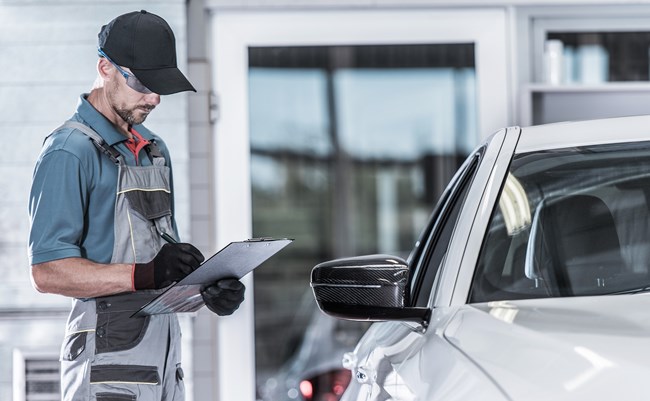We use cookies to ensure that we give you the best experience on our website. If you continue without changing your settings, we will assume that you are happy to receive all cookies on the Business Car website. However, if you would like to, you can change your cookies at any time

The start point for the best source of fleet information |
EVs more likely to fail MOTs than petrol or hybrid cars, research finds
Date: 18 August 2022 | Author: Sean Keywood

EVs have higher MOT failure rates than equivalently aged petrol and hybrid cars, according to research by BookMyGarage.com.
DVSA data obtained by the website showed that EVs had a failure rate of 11.4% at three years old, and 21.8% at six years old.
This is a higher rate than both petrol cars, at 10.7% and 19.1% respectively, and hybrid cars, at 11.2% and 15.4%.
However, EVs do outperform three-year old diesel cars, which have a failure rate of 15.1%, although diesels have the edge after six years at 21.4%.
BookMyGarage.com suggested that the relatively high failure rate for EVs was due to increased service intervals, with fewer components or fluids needing replacing, meaning fewer chances for defects to be picked up in advance.
Also, EVs can be harder on some components, such as tyres, with 22% of all EV MOT failures down to these, compared with 12% for other fuel types.
BookMyGarage.com co-founder Karen Rotberg said: "With EVs requiring less maintenance, it's likely they're making fewer visits to workshops, which means fewer safety inspections are being carried out to check for potential defects.
"This data highlights the importance of regular servicing and safety checks on electric vehicles, even though their service schedules are simpler, to ensure any defects are found before they become dangerous.
"This data isn't a reflection of EVs being any less reliable than other fuel types, but with them generally making fewer visits to garages it does highlight the importance of owners carrying out regular checks to ensure their vehicle is always in a roadworthy condition."











